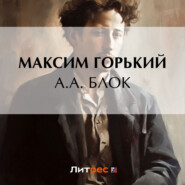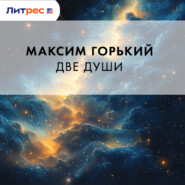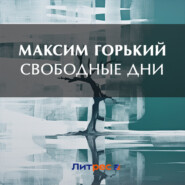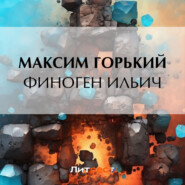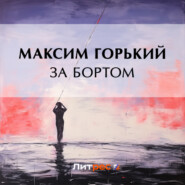По всем вопросам обращайтесь на: info@litportal.ru
(©) 2003-2025.
✖
Through Russia
Настройки чтения
Размер шрифта
Высота строк
Поля
"Eh? Well, I never heard you."
"Where were you, then?"
By way of reply, my conductor silently pointed in my direction with the stem of his pipe. Then he led me into the forecourt of the hut next to the one whence the young woman had issued, whilst she proceeded to project fresh volleys of abuse, and fresh expressions of accentuated non-amiability.
In the little doorway of the dwelling next to hers, we found seated two old women. One of them was as rotund and dishevelled as a battered, leathern ball, and the other one was a woman bony and crooked of back, swarthy of skin, and irritable of feature. At the women's feet lay, lolling out a rag-like tongue, a shaggy dog which, red and pathetic of eye, could boast of a frame nearly as large as a sheep's.
First of all, Ufim related in detail how he had fallen in with myself. Then he stated the purpose for which he conceived it was possible that I might prove useful. And all the time that he was speaking, two pairs of eyes contemplated him in silence; until, on the completion of his recital, one of the old women gave a jerk to a thin, dark neck, and the other old dame invited me to take a seat whilst she prepared some supper.
Amid the tangled herbage of the forecourt, a spot overgrown with mallow and bramble shoots, there was standing a cart which, lacking wheels, had its axle-points dark with mildew. Presently a herd of cattle was driven past the hut, and over the hamlet there seemed to arise, drift, and float, a perfect wave of sound. Also, as evening descended, I could see an ever-increasing number of grey shadows come creeping forth from the forecourt's recesses, and overlaying and darkening the turf.
"One day all of us must die," remarked Ufim, with empressement as he tapped the bowl of his pipe against a wall.
The next moment the barefooted, red-cheeked young woman showed herself at the gate, and asked in tones rather less vehement than recently:
"Are you coming, or are you not?"
"Presently," replied Ufim. "One thing at a time."
For supper I was given a hunch of bread and a bowl of milk; whereupon the dog rose, laid its aged, slobbering muzzle upon my knee, and gazed into my face with its dim eyes as though it were saying, "May I too have a bite?"
Next, like an eventide breeze among withered herbage, there floated across the forecourt the hoarse voice of the crook-backed old woman.
"Let us pray," she said. "Oh God, take away from us all sorrow, and receive therefore requitement in twofold measure!"
As she recited the prayer with a mien as dark as fate, the supplicant rolled her long neck from side to side, and nodded her ophidian-shaped head in accordance with a sort of regular, lethargic rhythm. Next I heard sink to earth, at my feet, some senile words uttered in a sort of singsong.
"Some folk need work just as much as they wish, and others need do no work at all. Yet OUR folk have to work beyond their strength, and to work without any recompense for the toil which they undergo."
Upon this the smaller of the old crones whispered:
"But the Mother of God will recompense them. She recompenses everyone."
Then a dead silence fell – a weighty silence, a silence seemingly fraught with matters of import, and inspiring in one an assurance that presently there would be brought forth impressive reflections – there would reach the ear words of mark.
"I may tell you," at length the crook-backed old woman remarked as she attempted to straighten herself, "that though my husband was not without enemies, he also had a particular friend named Andrei, and that when failing strength was beginning to make life difficult for us in our old home on the Don, and folk took to reviling and girding at my husband, Andrei came to us one day, and said: 'Yakov, let not your hands fail you, for the earth is large, and in all parts has been given to men for their use. If folk be cruel, they are so through stupidity and prejudice, and must not be judged for being so. Live your own life. Let theirs be theirs, and yours yours, so that, dwelling in peace, while yielding to none, you shall in time overcome them all.'"
"That is what Vasil too used to say. He used to say: 'Let theirs be theirs, and ours ours.'"
"Aye, never a good word dies, but, wheresoever it be uttered, flies thence through the world like a swallow."
Ufim corroborated this with a nod.
"True indeed!" he remarked. "Though also it has been said that a good word is Christ's, and a bad word the priest's."
One of the old women shook her head vigorously at this, and croaked:
"The badness lies not in any word of a priest, but in what you yourself have just said. You are greyheaded, Ufim, yet often you speak without thought."
Presently Ufim's wife reappeared, and, waving her hands as though she were brandishing a sieve, began to vent renewed volleys of virulent abuse.
"My God," she cried, "what sort of a man is that? Why, a man who neither speaks nor listens, but for ever keeps baying at the moon like a dog!"
"NOW she's started!" Ufim drawled.
Westward there were arising, and soaring skyward, clouds of such a similarity to blue smoke and blood-red flame that the steppe seemed almost to be in danger of catching fire thence. Meanwhile a soft evening breeze was caressing the expanse as a whole, and causing the grain to bend drowsily earthward as golden-red ripples skimmed its surface. Only in the eastern quarter whence night's black, sultry shadow was stealthily creeping in our direction had darkness yet descended.
At intervals there came vented from the window above my head the hot odour of a dead body; and, whenever that happened, the dog's grey nostrils and muzzle would quiver, and its eyes would blink pitifully as it gazed aloft. Glancing at the heavens, Ufim remarked with conviction:
"There will be no rain tonight."
"Do you keep such a thing as a Psalter here?" I inquired.
"Such a thing as a what?"
"As a Psalter – a book?"
No answer followed.
Faster and faster the southern night went on descending, and wiping the land clean of heat, as though that heat had been dust. Upon me there came a feeling that I should like to go and bury myself in some sweet-smelling hay, and sleep there until sunrise.
"Maybe Panek has one of those things?" hazarded Ufim after a long pause. "At any rate he has dealings with the Molokans."
After that, the company held further converse in whispers. Then all save the more rotund of the old women left the forecourt, while its remaining occupant said to me with a sigh:
"You may come and look at him if you wish."
Small and gentle looked the woman's meekly lowered head as, folding her hands across her breast, she added in a whisper:
"Oh purest Mother of God! Oh Thou of spotless chastity!"
In contrast to her expression, that on the face of the dead man was stem and, as it were, fraught with importance where thick grey eyebrows lay parted over a large nose, and the latter curved downwards towards a moustache which divided introspective, partially closed eyes from a mouth that was set half-open. Indeed, it was as though the man were pondering something of annoyance, so that presently he would make shift to deliver himself of a final and urgent injunction. The blue smoke of a meagre candle quivered meanwhile, over his head, though the wick diffused so feeble a light that the death blurs under the eyes and in the cheek furrows lay uneffaced, and the dark hands and wrists, disposed, lumplike, on the front of the greyish-blue shroud, seemed to have had their fingers twisted in a manner which even death had failed to rectify. And ever and anon, streaming from door to window, came a draught variously fraught with the odours of wormwood, mint, and corruption.
Presently the old woman's whispering grew more animated and intelligible, while constantly, amid the wheezed mutterings, sheet lightning cut the black square of the window space with menacing flashes, and seemed, with their blue glare, as it shot through the tomblike hut, to cause the candle's flickering flame to undergo a temporary extinction, a temporary withdrawal, and the grey bristles on the dead man's face to gleam like the scales of a fish, and his features to gather themselves into a grim frown. Meanwhile, like a stream of cold, bitter water dripping upon my breast, the old woman's whispered soliloquy maintained its uninterrupted flow.
At length there recurred, somehow, to my mind the words which, impressive though they be, never can assuage sorrow – the words:
"Weep not for me, Martha, nor gaze into the tomb, for, lo, I am risen!"
Nay, and never would THIS man rise again…
Presently the bony old woman returned with a report that nowhere among the huts could a Psalter be found, but only a book of another kind. Would it do?
The other book turned out to be a grammar of the Church Slavonic dialect, with the first pages torn out, and beginning with the words, "Drug, drugi, druzhe." ["A friend, of a friend, O friend."]
"What, then, are we to do?" vexedly asked the smaller of the dames when I had explained to her that a grammar could work no benefit to a corpse. As she put the query, her small, childlike face quivered with disappointment, and her eyes swelled and overflowed with tears.
"My man has lived his life," she said with a sob, "and now he cannot even be given proper burial!"
"Where were you, then?"
By way of reply, my conductor silently pointed in my direction with the stem of his pipe. Then he led me into the forecourt of the hut next to the one whence the young woman had issued, whilst she proceeded to project fresh volleys of abuse, and fresh expressions of accentuated non-amiability.
In the little doorway of the dwelling next to hers, we found seated two old women. One of them was as rotund and dishevelled as a battered, leathern ball, and the other one was a woman bony and crooked of back, swarthy of skin, and irritable of feature. At the women's feet lay, lolling out a rag-like tongue, a shaggy dog which, red and pathetic of eye, could boast of a frame nearly as large as a sheep's.
First of all, Ufim related in detail how he had fallen in with myself. Then he stated the purpose for which he conceived it was possible that I might prove useful. And all the time that he was speaking, two pairs of eyes contemplated him in silence; until, on the completion of his recital, one of the old women gave a jerk to a thin, dark neck, and the other old dame invited me to take a seat whilst she prepared some supper.
Amid the tangled herbage of the forecourt, a spot overgrown with mallow and bramble shoots, there was standing a cart which, lacking wheels, had its axle-points dark with mildew. Presently a herd of cattle was driven past the hut, and over the hamlet there seemed to arise, drift, and float, a perfect wave of sound. Also, as evening descended, I could see an ever-increasing number of grey shadows come creeping forth from the forecourt's recesses, and overlaying and darkening the turf.
"One day all of us must die," remarked Ufim, with empressement as he tapped the bowl of his pipe against a wall.
The next moment the barefooted, red-cheeked young woman showed herself at the gate, and asked in tones rather less vehement than recently:
"Are you coming, or are you not?"
"Presently," replied Ufim. "One thing at a time."
For supper I was given a hunch of bread and a bowl of milk; whereupon the dog rose, laid its aged, slobbering muzzle upon my knee, and gazed into my face with its dim eyes as though it were saying, "May I too have a bite?"
Next, like an eventide breeze among withered herbage, there floated across the forecourt the hoarse voice of the crook-backed old woman.
"Let us pray," she said. "Oh God, take away from us all sorrow, and receive therefore requitement in twofold measure!"
As she recited the prayer with a mien as dark as fate, the supplicant rolled her long neck from side to side, and nodded her ophidian-shaped head in accordance with a sort of regular, lethargic rhythm. Next I heard sink to earth, at my feet, some senile words uttered in a sort of singsong.
"Some folk need work just as much as they wish, and others need do no work at all. Yet OUR folk have to work beyond their strength, and to work without any recompense for the toil which they undergo."
Upon this the smaller of the old crones whispered:
"But the Mother of God will recompense them. She recompenses everyone."
Then a dead silence fell – a weighty silence, a silence seemingly fraught with matters of import, and inspiring in one an assurance that presently there would be brought forth impressive reflections – there would reach the ear words of mark.
"I may tell you," at length the crook-backed old woman remarked as she attempted to straighten herself, "that though my husband was not without enemies, he also had a particular friend named Andrei, and that when failing strength was beginning to make life difficult for us in our old home on the Don, and folk took to reviling and girding at my husband, Andrei came to us one day, and said: 'Yakov, let not your hands fail you, for the earth is large, and in all parts has been given to men for their use. If folk be cruel, they are so through stupidity and prejudice, and must not be judged for being so. Live your own life. Let theirs be theirs, and yours yours, so that, dwelling in peace, while yielding to none, you shall in time overcome them all.'"
"That is what Vasil too used to say. He used to say: 'Let theirs be theirs, and ours ours.'"
"Aye, never a good word dies, but, wheresoever it be uttered, flies thence through the world like a swallow."
Ufim corroborated this with a nod.
"True indeed!" he remarked. "Though also it has been said that a good word is Christ's, and a bad word the priest's."
One of the old women shook her head vigorously at this, and croaked:
"The badness lies not in any word of a priest, but in what you yourself have just said. You are greyheaded, Ufim, yet often you speak without thought."
Presently Ufim's wife reappeared, and, waving her hands as though she were brandishing a sieve, began to vent renewed volleys of virulent abuse.
"My God," she cried, "what sort of a man is that? Why, a man who neither speaks nor listens, but for ever keeps baying at the moon like a dog!"
"NOW she's started!" Ufim drawled.
Westward there were arising, and soaring skyward, clouds of such a similarity to blue smoke and blood-red flame that the steppe seemed almost to be in danger of catching fire thence. Meanwhile a soft evening breeze was caressing the expanse as a whole, and causing the grain to bend drowsily earthward as golden-red ripples skimmed its surface. Only in the eastern quarter whence night's black, sultry shadow was stealthily creeping in our direction had darkness yet descended.
At intervals there came vented from the window above my head the hot odour of a dead body; and, whenever that happened, the dog's grey nostrils and muzzle would quiver, and its eyes would blink pitifully as it gazed aloft. Glancing at the heavens, Ufim remarked with conviction:
"There will be no rain tonight."
"Do you keep such a thing as a Psalter here?" I inquired.
"Such a thing as a what?"
"As a Psalter – a book?"
No answer followed.
Faster and faster the southern night went on descending, and wiping the land clean of heat, as though that heat had been dust. Upon me there came a feeling that I should like to go and bury myself in some sweet-smelling hay, and sleep there until sunrise.
"Maybe Panek has one of those things?" hazarded Ufim after a long pause. "At any rate he has dealings with the Molokans."
After that, the company held further converse in whispers. Then all save the more rotund of the old women left the forecourt, while its remaining occupant said to me with a sigh:
"You may come and look at him if you wish."
Small and gentle looked the woman's meekly lowered head as, folding her hands across her breast, she added in a whisper:
"Oh purest Mother of God! Oh Thou of spotless chastity!"
In contrast to her expression, that on the face of the dead man was stem and, as it were, fraught with importance where thick grey eyebrows lay parted over a large nose, and the latter curved downwards towards a moustache which divided introspective, partially closed eyes from a mouth that was set half-open. Indeed, it was as though the man were pondering something of annoyance, so that presently he would make shift to deliver himself of a final and urgent injunction. The blue smoke of a meagre candle quivered meanwhile, over his head, though the wick diffused so feeble a light that the death blurs under the eyes and in the cheek furrows lay uneffaced, and the dark hands and wrists, disposed, lumplike, on the front of the greyish-blue shroud, seemed to have had their fingers twisted in a manner which even death had failed to rectify. And ever and anon, streaming from door to window, came a draught variously fraught with the odours of wormwood, mint, and corruption.
Presently the old woman's whispering grew more animated and intelligible, while constantly, amid the wheezed mutterings, sheet lightning cut the black square of the window space with menacing flashes, and seemed, with their blue glare, as it shot through the tomblike hut, to cause the candle's flickering flame to undergo a temporary extinction, a temporary withdrawal, and the grey bristles on the dead man's face to gleam like the scales of a fish, and his features to gather themselves into a grim frown. Meanwhile, like a stream of cold, bitter water dripping upon my breast, the old woman's whispered soliloquy maintained its uninterrupted flow.
At length there recurred, somehow, to my mind the words which, impressive though they be, never can assuage sorrow – the words:
"Weep not for me, Martha, nor gaze into the tomb, for, lo, I am risen!"
Nay, and never would THIS man rise again…
Presently the bony old woman returned with a report that nowhere among the huts could a Psalter be found, but only a book of another kind. Would it do?
The other book turned out to be a grammar of the Church Slavonic dialect, with the first pages torn out, and beginning with the words, "Drug, drugi, druzhe." ["A friend, of a friend, O friend."]
"What, then, are we to do?" vexedly asked the smaller of the dames when I had explained to her that a grammar could work no benefit to a corpse. As she put the query, her small, childlike face quivered with disappointment, and her eyes swelled and overflowed with tears.
"My man has lived his life," she said with a sob, "and now he cannot even be given proper burial!"












